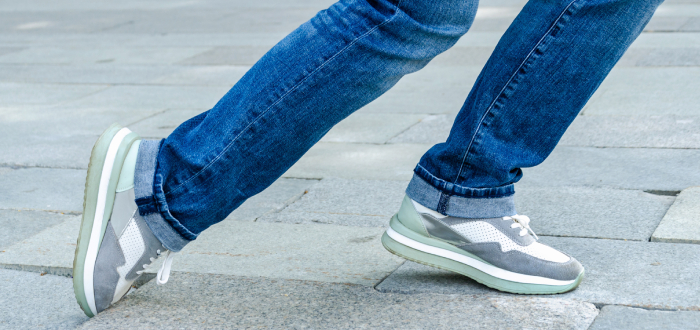If you suffer an injury due to a broken sidewalk in Houston, it is important to take immediate and appropriate steps to address the situation. The first priority is to take care of your medical needs. After that, it is important to maintain records and be able to document the accident. The next step would be to consult with a personal injury attorney to discuss your legal options and determine who is the responsible party or entity, as well as to be informed of specific notice requirements pertaining to a governmental entity in Texas. Lastly, timely filing of a claim is crucial so that you fall within the statute of limitations period for personal injury cases in Texas.
Steps To Take If You Have Been Injured On A Broken Sidewalk
- Seek Medical Attention: First and foremost, ensure that you get the necessary medical treatment for your injuries. This is crucial for your health and also serves to document your injuries, which is important for any legal claims.
- Document the Incident: Take photos of the broken sidewalk where the accident occurred, including any specific features that caused your injury. Also, obtain the contact information of any witnesses who were at the scene of the accident.
- Report the Incident: Inform the city where the accident occurred about the broken sidewalk. This can often be done online or by calling the city’s helpline. Reporting the incident officially can be important for a legal claim.
- Gather Evidence: Your attorney will help you compile necessary evidence, which may include medical records, incident reports, and any correspondence with the city or property owner.
- Consult with a Personal Injury Attorney: It is advisable to speak with an attorney who specializes in personal injury law. They can assess the strength of your case, the potential for compensation, and the legal process involved.
- Understand the Legal Framework: In Houston, like in many places, there are specific laws and regulations regarding public property maintenance and premises liability. Your attorney can explain how these laws apply to your situation.
Premises Liability
When it comes to premises liability, particularly in cases of trip and fall accidents on public sidewalks, the legal responsibility depends on whether the sidewalk is public or private, and the specifics of the case. If a sidewalk is public and a dangerous condition leads to an injury, the city might be held liable, similar to a private property owner’s liability for falls on their premises. The City of Houston is typically responsible for slip-and-fall accidents that happen on walkways and sidewalks owned by the city. Previously, the theory of sovereign immunity made it difficult to recover damages for injuries sustained. However, the Texas Tort Claims Act Section 101.022 provides that the city may be held accountable for a premise liability claim.
As such, pedestrians who are injured on public sidewalks in Houston may file a lawsuit against the city, county, town, or state government agency.
- File a Claim: If you have a viable case, your lawyer will assist you in filing a claim. This could be against the city, a business, or a property owner, depending on who is responsible for the sidewalk maintenance.
- Negotiate a Settlement or Prepare for Court: Many personal injury cases are settled out of court. Your lawyer will negotiate with the defendant for a fair settlement. If a settlement cannot be reached, your case may go to trial.
- Understand Time Limits: Be aware that there are time limits for filing personal injury claims. In Texas, the general statute of limitations for personal injury claims is two years from the date of the injury, but this can vary depending on specific circumstances.
- Municipal Notice Requirements: In Houston, public property liability and the associated notice requirements are governed by specific legal procedures and statutes. Here is an overview of how it works:
- Notice of Claim for Damages: The injured party who fell on a broken sidewalk must provide a written notice to the mayor and city council before the city can be held liable for any damages due to personal injuries or property destruction. or the property This notice needs to be submitted within 90 days after the incident. It needs to detail the circumstances of the injury or destruction, including when, where, and how it occurred, the extent of the damage, the amount of settlement sought, the claimant’s residence, and the names and addresses of witnesses. Failure to provide this notice within the specified timeframe exempts the city from any liability.
- Limitations on Liability: Section 101.023 of the Texas Civil Practice Remedies Code provides the damage cap for personal injury actions against governmental agencies. The amount you can claim depends on the type of government entity you are suing. The state and city government allows victims to sue for up to $250,000 per person and $500,000 per incident. All other government levels allow for $100,000 per person and $300,000 per incident. Punitive damages (exemplary damages) are not allowed against the government. They have immunity against such damages.
- Stay Informed and Involved: Stay in regular contact with your attorney and keep yourself informed about the progress of your case.
Understanding and navigating all of these legal requirements can be complex, especially in cases involving injuries or property damage on public property. It is often advisable to consult with an experienced personal injury attorney for guidance specific to your situation. Ceja Law Firm, PLLC can help you understand your rights and options. We can provide an initial complimentary consultation to help you decide if you would like to use our services.











